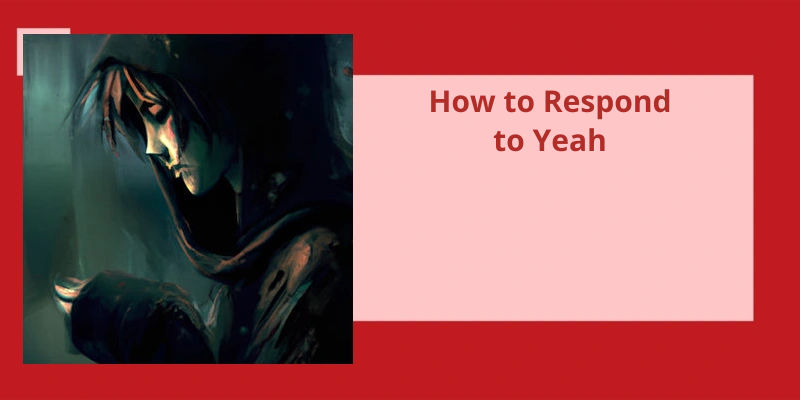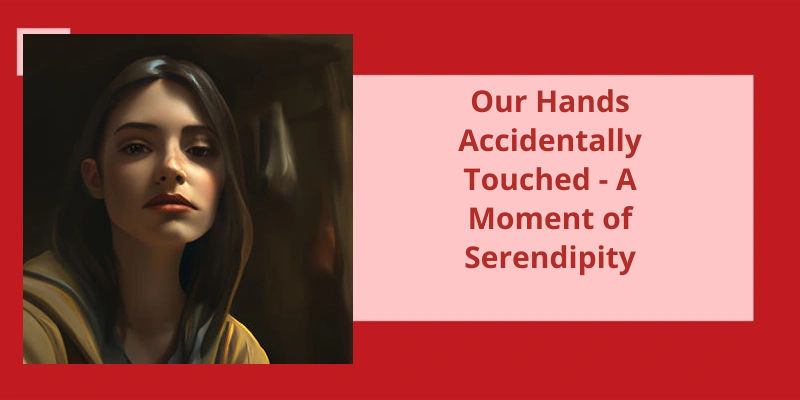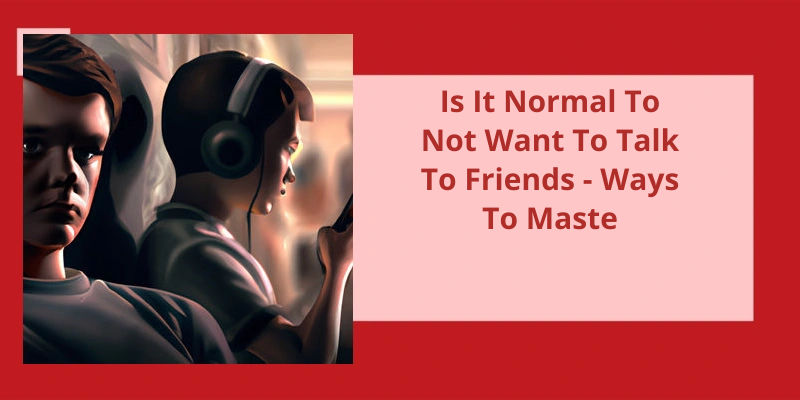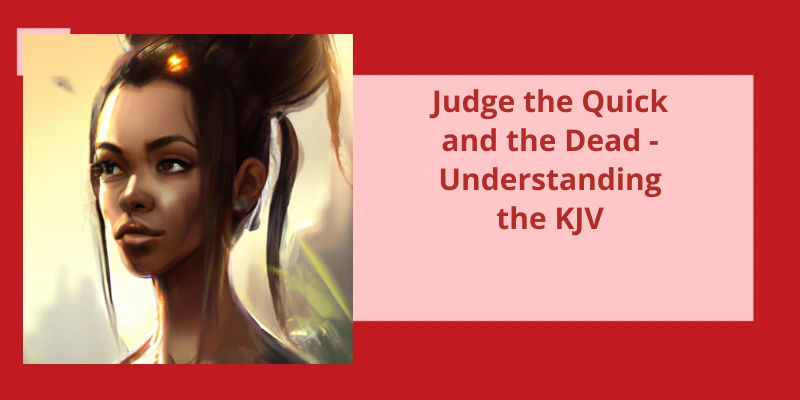When someone responds with "yeah, I guess" to a statement or question, it can often leave the conversation feeling unfinished. It can be difficult to know how to respond and continue the conversation, especially if you're unsure of the other person's intentions or feelings. However, there are several strategies you can use to respond in a way that keeps the conversation flowing and shows that you're engaged and interested in what the other person has to say. Whether you want to continue talking about the topic at hand or pivot to a new subject, there are ways to respond to "yeah, I guess" that can help you build stronger connections with the people around you. In this article, we'll discuss some of the most effective strategies for responding to this common conversational roadblock, so you can feel confident and prepared the next time it comes up.
What Can I Reply to Yeah?
However, depending on the context of the conversation or the tone of the person, the word “Yeah” could also mean agreement, excitement or even sarcasm. Hence, it’s essential to understand the underlying meaning behind the word before you respond.
When someone says, “Yeah,” your response could either be a confirmation of what they said or a continuation of the conversation. You could reply with phrases like “I see” or “Great” to show that you understand what they mean, and you’re interested in the discussion. Alternatively, replying with “Aha” could imply that you’ve made a connection or an insight about the subject matter.
If the conversation is taking longer than usual, you could interject with the word “Om” to signify your interest in the subject matter. This could also indicate that you’re paying attention to the details of the conversation. Additionally, saying words like “OK” could imply that you’re ready to move on from the discussion, or that you aren’t entirely invested in the conversation topic.
This could signify that they’re uninterested in the discussion or have other pressing issues. Therefore, you could reply with something like, “I understand” or “Lets talk later” to acknowledge their response while also hinting that you’ve picked up on the underlying dismissiveness.
The tone, speakers body language, and the discussions subject matter could all impact the meaning of the response. Therefore, it’s essential to listen actively and respond appropriately to ensure a meaningful conversation.
How to Differentiate Between “Yeah” and “Yea”
- Yeah is commonly used as an informal way of saying “yes”
- Yea is often used in voting or agreements to mean “yes” or “I agree”
- Yeah can also be used to express excitement or agreement
- Yea can also be spelled as “yay” in informal contexts
- When in doubt, use “yeah” for informal speech and “yea” for formal situations
However, there are certain situations where a simple acknowledgment or clarification may be needed. In this article, we’ll explore some of these situations and provide suggestions on how to respond to “yeah” in a meaningful and effective way.
What Should I Reply to Yeah?
In casual conversation, “yeah” is often used as a form of agreement or acknowledgement. Responding to it with something like “I know, right?” or “Totally!” can come off as overly enthusiastic or insincere. Instead, simply nodding or giving a small smile can be a sufficient nonverbal response.
In a more formal setting, such as a work email or professional meeting, “yeah” can be seen as unprofessional or dismissive. Replying with a more formal phrase such as “Yes, I understand” or “Thank you for letting me know” shows respect and professionalism.
Ignoring the comment or simply saying “okay” can escalate the situation. Responding calmly and assertively with a phrase such as “I understand your perspective, but…” or “Let’s discuss this further…” can help defuse the situation and lead to a productive conversation.
If the conversation is lighthearted and informal, a humorous response such as “Yeah, yeah, yeah, I got it” may be appropriate. However, in a serious or sensitive conversation, it’s best to avoid any sarcastic or dismissive responses.
Ultimately, the key is to be mindful of the tone and context of the conversation and respond appropriately. In many cases, a simple nod or smile is all that’s needed. In others, a more formal response may be necessary. By being aware of the situation and responding appropriately, you can show respect, professionalism, and effective communication skills.
Tips for Responding to Other Common Conversational Phrases (e.g. “Uh-Huh,” “Okay,” “I See”)
Here are some helpful tips for responding to common conversational phrases like “uh-huh,” “okay,” and “I see”:
1. Try to match the tone and energy of the person you’re talking to. If they’re excited or energetic, respond with enthusiasm. If they’re more subdued, respond in kind.
2. Use these phrases as an opportunity to show that you’re actively listening and engaged in the conversation. Nodding your head, making eye contact, and adding verbal cues like “got it” or “understood” can help convey that you’re paying attention.
3. Don’t be afraid to ask for clarification if you’re unsure what the other person means. Phrases like “could you explain that a bit more?” or “I’m not quite following you” can help keep the conversation flowing smoothly.
4. Finally, don’t underestimate the power of a simple “thank you” or “appreciate it” in response to these conversational phrases. It shows that you value the other person’s input and are grateful for the conversation.
It can be difficult to interpret the meaning behind someone’s response when they use casual language. One phrase in particular that may leave you wondering is “yeah, I guess.” This seemingly noncommittal phrase can have various connotations, and understanding the context and tone of the conversation is crucial in deciphering it’s true meaning. Let’s take a closer look at this expression and explore it’s possible interpretations.
What Does It Mean When a Guy Says Yeah I Guess?
When a guy says yeah I guess, it can be quite ambiguous and open to interpretation. Some people may view this response as a lack of interest or enthusiasm, while others may see it as an acknowledgement without committing to a definite yes or no answer. It could just be a casual response that doesn’t have any significant meaning behind it.
In some cases, a guy may use the phrase yeah I guess to avoid confrontation or conflict. Rather than risk offending someone or causing an argument, they use non-committal language to diffuse the situation. This can be frustrating for people who’re looking for a firm answer, but it’s important to respect someones communication style and preferences.
If they’re feeling annoyed or irritated, they may use this phrase in a way that suggests they aren’t really enthusiastic about the situation. While this can be frustrating for those who’re seeking clarity or validation, it’s important to remember that we all have different communication styles.
It’s important not to read too much into a single response and to communicate openly and clearly to ensure understanding. By respecting each others communication styles and preferences, we can avoid misunderstandings and build stronger relationships.
How to Interpret “Yeah I Guess” in Different Contexts (e.g. Dating, Friendships, Work Relationships)
- When it comes to dating, “yeah I guess” could mean that the person isn’t really interested in going out with you, but doesn’t want to completely shut you down.
- In a friendship context, “yeah I guess” may indicate that the person is hesitant about something but not completely opposed to it.
- When dealing with work relationships, “yeah I guess” could suggest that the person isn’t fully on board with a particular idea or plan.






